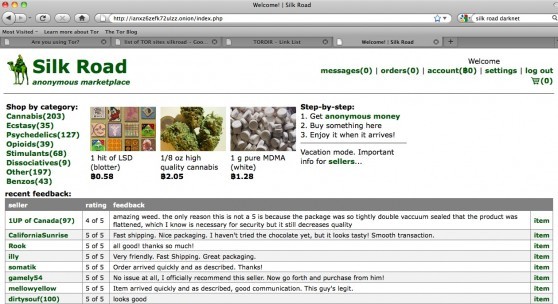Much has been made of the potential dangers posed by dark net drug markets, from unprecedented availability, to new ‘harmful’ substances being used recreationally. But, does increased interaction among users and grassroots online community advice actually reduce risk?
Of course, there is the immediate benefit of removing face-to-face interaction with unknown dealers and thus any possible risk of violence, along with any immediate risk of arrest for purchasing illicit substances. This is just the tip of the iceberg, though, when discussing what we mean by risk in the street-level market.
During the famed trial of Ross Ulbricht — founder of the now-defunct Silk Road online drug market who was sentenced last year to life in prison — researcher Tim Bingham submitted evidence (see Exhibit 11) for the defense prior to sentencing stating that his findings revealed how cyber communities provided each other with “nested support systems,” including information exchange and identification of trusted suppliers. This ultimately illustrated “Silk Road’s capacity to encourage harm reduction within a very hard to reach drug using population,” Bingham’s submission stated.
Silk Road’s Amazon-esque approach was central to this; buyers would rate and comment on vendor’s products, anonymity and delivery time, establishing a meritocratic system where vendors with the most consistent product would rise in popularity. Those with established reputations would gain buyers as the rating system would benefit those with the most confirmed (i.e. received) sales. Those with low-quality products or scammers were denounced by the community and expelled by forum moderators.
A perfect example of the latter can be found in the rise of the LSD Avengers on Silk Road. After several claims of research chemicals being purposefully sold as LSD, the group would buy batches of the drug from several vendors and test them for purity, leaving reviews on vendors’ pages so all potential customers were informed.
N.B. For more on the harm reduction benefits of dark net markets, see Buxton and Bingham’s paper from 2015.
Such support communities are comparatively sparse in the non-virtual world, with news on the quality of a dealer’s batch taking far longer to filter through to buyers. Not only does this increase the chance of being scammed, but also has potentially fatal consequences if what’s being sold has been cut with a toxic substitute (for example, marketed as MDMA but with high levels of PMMA).
An additional benefit offered by Silk Road was online medical counseling — Fernando Caudevilla, known as Dr. X, is a Spanish expert on illicit drugs who provided tailored advice to Silk Road members on drug combinations, real risks and adverse effects. He told Motherboard that Ulbricht paid him $500 a week to maintain his online services.
Furthermore, he helped establish a drugs testing facility where users anonymously sent him drug samples where he would test them for adulterants. He also claimed heroin users, especially people from countries were opioid substitution treatment is unavailable, were attracted to online markets to purchase methadone.
Caudevilla’s presence was significant as one Silk Road user pointed out: “If I went to my doc with some of the questions he's answered I would get the same old 'drugs are bad' response even though I was going to do it without his consent."
Proper harm reduction advice and testing is comparatively hard to come by in non-online markets. Public drug education has historically focused on prevention and fear-mongering, rather than accepting the reality of drug use and advising on how to dose more safely, while drug testing is all but non-existent, save for some isolated initiatives at festivals and the odd static site.
Although the dark net is the Internet’s equivalent of the Wild West, a community formed and established their own rules to bring order into a stereotypically dangerous market. The market’s anonymous nature obviously limits the information on just how successful these move have been — though Dr. Caudevilla believes there were no drug-related deaths as a result of Silk Road, despite the prosecution claiming the marketplace can be linked to six such deaths.
Nonetheless, grassroots regulation appears to have worked in removing incentives for online drug adulteration and although illegal, Silk Road seemed to put more empathetic measures in place to ensure its users’ well-being.


